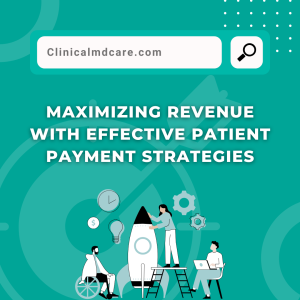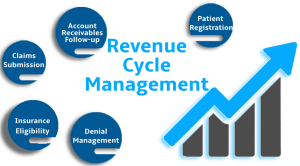Medical billing plays an important role for healthcare providers, yet it presents significant challenges. The result of billing errors is that claims are denied, payments are delayed, and there are substantial financial setbacks. Healthcare facilities face challenges with complex coding rules and following regulations. Addressing these issues ensures smooth financial operations and better patient care.
In order to optimize revenue cycle management, it is important to understand the challenges involved in medical billing. It is important to stay up-to-date with changing insurance policies and billing regulations. The implementation of efficient solutions can improve reimbursement rates for healthcare providers and maintain a steady cash flow.
1. Coding Errors and Claim Denials
Medical coding errors are a major cause of claim denials. It is possible for minor errors in ICD-10 or CPT codes to delay reimbursements. Regular training and updated software reduce coding errors significantly. Automated coding tools help ensure accuracy and faster processing.
2. Insurance Verification Issues
Failure to verify insurance details results in claim rejections. Providers must check coverage before offering services. Implementing real-time insurance verification improves claim acceptance rates. A structured verification process minimizes billing discrepancies.
3. Compliance with Changing Regulations
Healthcare billing regulations frequently change, making compliance difficult. HIPAA and Medicare updates impact billing practices. Providers must stay informed about new compliance requirements. Regular staff training is essential to ensure compliance with the latest regulations.
4. Delayed Payments and Revenue Cycle Inefficiencies
Delayed claim processing results in late payments and financial uncertainty. Inefficient billing workflows disrupt revenue cycles. Implementing automated claim submissions speeds up reimbursements. A dedicated billing team improves cash flow and financial health.
5. Patient Payment Challenges
Patients often struggle with understanding medical bills. Confusing invoices lead to payment delays. Clear billing statements and flexible payment plans improve collection rates. Educating patients about insurance coverage enhances timely payments.
6. Denial Management and Appeals Process
Denied claims require timely action to prevent revenue loss. A structured denial management strategy reduces financial risks. Analyzing common denial reasons helps providers prevent future claim rejections. Efficient appeals processes recover lost revenue effectively.
7. Integration of Advanced Billing Technologies
Outdated billing systems slow down payment cycles. Implementing AI-driven solutions enhances billing accuracy. Cloud-based billing software improves efficiency and security. Advanced technologies optimize financial performance for healthcare providers.
Conclusion
Medical billing challenges impact healthcare revenue and financial stability. Addressing coding errors, compliance issues, and payment delays ensures seamless operations. Integrating automation and patient education improves billing efficiency. Overcoming these obstacles leads to better financial outcomes and improved patient satisfaction.












